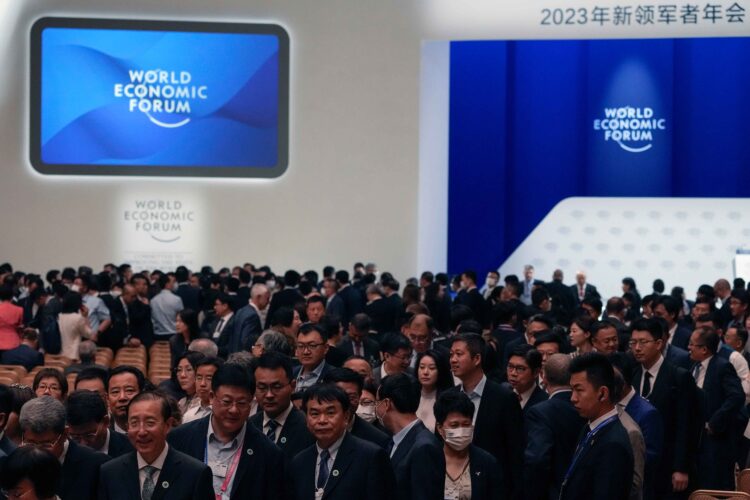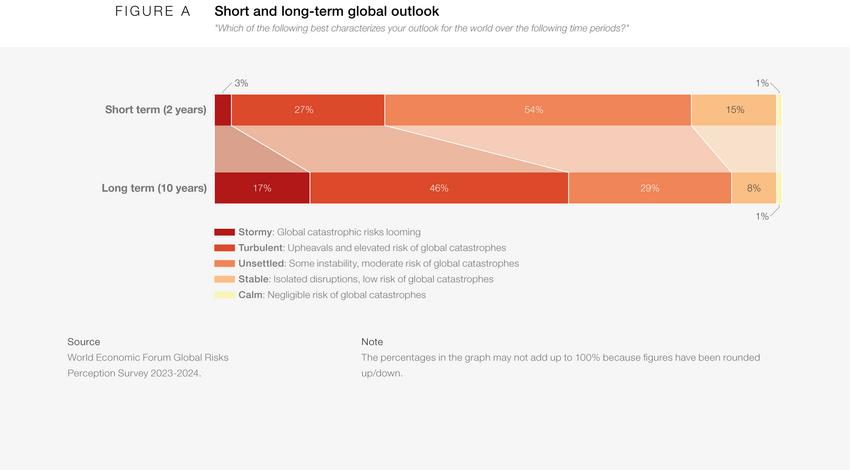The World Economic Forum (WEF), a think tank for corporate and government leaders that holds an annual conference in Davos, Switzerland, is predicting that “misinformation and disinformation” will be the greatest global risk over the next two years.
In a new publication titled “Global Risks Report 2024,” the WEF claims that 2023 was full of “societal discontent” such as “polarization, violent protest, riots and strikes,” and that “globally destabilizing consequences” from events like the Ukraine War and the pandemic “could bring further global shocks.” Taking this into account, the respondents have adopted “a predominantly negative outlook” regarding the next two years “that is expected to worsen over the next decade.”
Learn the benefits of becoming a Valuetainment Member and subscribe today!
To establish its results, the WEF surveyed “1,490 experts” in academia, business, and politics about their overall future outlook. The study was produced in partnership with New York insurance and risk management company Marsh McLennan and the Zurich Insurance Group, the largest insurer in Switzerland.
Of the respondents, 54 percent said the next two years will be “unsettled,” 27 percent said they will be “turbulent,” and three percent said it will be outright “stormy.” 15 percent said they will be “stable,” and just one percent said they will be “calm.”
The results for ten-year outlooks were even worse: 17 percent predict “stormy,” and 46 percent predict “turbulent.”
Related: Henry Kissinger Helped Klaus Schwab Found the WEF
The survey respondents on average predict that “misinformation and disinformation” will be the number one risk over the next two years. They claim it will be leveraged by “foreign and domestic actors alike” to “further widen societal and political divides.”
The WEF writes that three billion people will be voting in elections in 2024, a number corroborated by Bloomberg. The organization warns that “the widespread use of misinformation and disinformation, and tools to disseminate it, may undermine the legitimacy of newly elected governments,” adding that “resulting unrest could range from violent protests and hate crimes to civil confrontation and terrorism.”
Related: 2024 BOLD Predictions: Election | War | Stock Market | Industry Disruptors | AI
It also warns that the very “perceptions of reality” are sure to become more “polarized,” ranging from topics such as “public health” and “social justice.” It simultaneously warns against authoritarian governments regulating the internet, likely having countries like populist Viktor Orban’s Hungary in mind.
In 2023, the WEF said the “cost of living crisis” would be the biggest two-year risk, and “failure to mitigate climate change” the biggest ten-year risk. “Misinformation and disinformation” did not even make the list, although “erosion of social cohesion and societal polarization” and “widespread cybercrime and cyber insecurity” were ranked 5th and 8th on the two-year list and 7th and 8th on the ten-year list.
Read the full report below:
 Shane Devine is a writer covering politics, economics, and culture for Valuetainment. Follow Shane on X (Twitter).
Shane Devine is a writer covering politics, economics, and culture for Valuetainment. Follow Shane on X (Twitter).




















Add comment